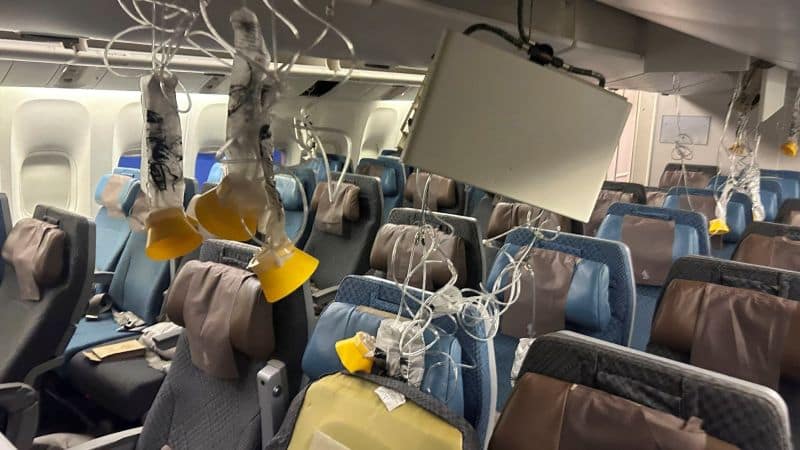“I cannot mourn,” one wrote on Twitter, posting an image of what she said was her grandmother’s “movement pass” — a colonial document which prevented free travel for Kenyans under British rule
Their refusal to mourn highlights the complexity of the legacy of the Queen, who despite widespread popularity was also seen as a symbol of oppression in parts of the world where the British Empire once extended.
Kenya, which had been under British rule since 1895, was named an official colony in 1920 and remained that way until it won independence in 1963. Among the worst atrocities under British rule occurred during the Mau Mau uprising, which started in 1952 — the year Queen Elizabeth took the throne.
Africa’s memory of the Queen cannot be separated from that colonial past, professor of communication Farooq Kperogi at Kennesaw State University told CNN.
“The Queen’s legacy started in colonialism and is still wrapped in it. It used to be said that the sun did not set over the British empire. No amount of compassion or sympathy that her death has generated can wipe that away,” he told CNN.
‘Tragic period’
While many African leaders have mourned her passing — including Nigeria’s President Muhammadu Buhari, who described her reign as “unique and wonderful” — other prominent voices in regional politics have not.
“Our interaction with Britain has been one of pain, … death and dispossession, and of the dehumanisation of the African people,” it added.
Others recalled Britain’s role in the Nigerian civil war, where arms were secretly supplied to the government for use against Biafrans who wanted to form a breakaway republic. Between 1 million and 3 million people died in that war. British musician John Lennon returned his MBE, an honorary title, to the Queen in protest over Britain’s role in the war.
Still, many on the continent remember the Queen as a stabilizing force who brought about positive change during her reign.
Ayodele Modupe Obayelu from Nigeria told CNN: “Her reign saw the end of the British Empire and the African countries … became a Republic. She doesn’t really deserve any award or standing ovation for it, but it was a step in the right direction.”
And Ovation magazine publisher Dele Momodu was full of praise, recounting meeting her in 2003 in Abuja while covering her visit to Nigeria. He added that he had fled Nigeria for the UK in 1995, during the dictator Sani Abacha’s regime.
“I told her I was a refugee and now the publisher of a magazine. She told me ‘congratulations,’ and moved on to the other people on the line. I salute her. She worked to the very end and was never tired of working for her country. She did her best for her country and that is a lesson in leadership,” he told CNN.
Momodu believes that the Queen did try to “atone” for the brutality of the British Empire. “She came to Nigeria during our independence and some of the artifacts were returned under her reign. That is why the Commonwealth continues to thrive. I feel very sad that the world has lost a great human being.”
Adekunbi Rowland, also from Nigeria, said: “The Queen’s passing represents the end of an era. As a woman, I’m intrigued by her story. This young woman had an unprecedented accession to the throne, and with much grace and dignity did everything in her power to protect the country and Commonwealth she loved no matter what it took.”
Commonwealth Queen
It was while visiting Kenya in 1952 that she learned that she had become Queen. Her father George passed away while she was there with Prince Phillip and she immediately ascended the throne.
As colonialism later crumbled and gave way to independence and self-rule in what had been British overseas territories, the former colonies became part of a Commonwealth group of nations with the Queen at its head and she worked tirelessly to keep the group together over the years.
She forged strong bonds with African leaders, including Nelson Mandela, whom she visited twice in South Africa, and Kwame Nkrumah, with whom she was famously pictured dancing during her visit to Ghana in 1961.
In June, Prince Charles became the first UK royal to visit Rwanda, where he was representing the Queen at the Commonwealth Heads of Government Meeting.
Following his mother’s death, he now heads the Commonwealth, and will embark on a new relationship with its members, about a third of which are in Africa.
Some are asking whether he will be as effective in building the organization as his mother, and above all, how relevant it still is, given its roots in Empire.
Don't Miss
Papua New Guinea (PNG) Foreign Minister Justin Tkatchenko said he was resigning as minister on Friday amid a controversy over
Sydney CNN — Australia’s men’s cricket team has withdrawn from a series of upcoming matches against Afghanistan in protest over
The funeral of Queen Elizabeth II of Britain, who died Sept. 8 at 96, took place Monday morning in

Britain’s capital city expects hundreds of thousands of people to visit Queen Elizabeth II as she lies in state in Westminster Hall ahead her funeral on Monday, the mayor of London Sadiq Khan told QT, adding that the situation was “unprecedented.”
The world has not seen a funeral like this,” he said, adding, “She was loved, revered, our monarch for more than 70 years.”
“We expect to see over the course of the next few days hundreds of thousands of people personally pay their respects to her majesty the Queen, but also we expect to see prime ministers, presidents, members of the royal family, and others from across the globe,” he continued.
“The really reassuring thing is our King, King Charles III, had the best possible mentor, and the best possible apprenticeship and that’s why I’m so confident he will be a wonderful king,” he added.
As world leaders and their teams arrive in London for the Queen’s funeral, Khan said the city has never before seen such crowd and this presence.
“In just a couple of days, we will have almost 300 world leaders and their teams and entourages coming to London. I don’t think our city’s ever seen the sort of presence we’re going to see over the next few days,” Khan told Sky News.
The number of mourners far exceeds the scale of other events, such as the London Olympics and other Royal events, he said, suggesting that the crowds for the Queen’s passing are larger than all those events combined.
“If you think about the London marathon, the carnival, previous royal weddings, the Olympics — it’s all that, in one,” Khan said.
“This is a massive operation and we’re working really hard together to make sure that we can do her, we can do King Charles, we can do the Royal Family, our city, our nation, and the Commonwealth, what it deserves,” the London mayor added.
People in a 2.5-mile-long line in London to pay their respects to Queen Elizabeth II explained why they wanted to visit her coffin in Westminster Hall.
“I just feel like I will regret it if I don’t. And I just felt like I needed to come and say goodbye. That’s just me. And also, when my family has children — my boys have children — I’d like to teach them the history of it all. So, it just needed to be done today,” one woman told QT’s Anna Stewart as she waited in line.
A group told Stewart that they were told the line could last about five hours from where they stood, but the queue is moving.
Prince Pavlos of Greece remembers his late cousin, Queen Elizabeth II
Pavlos, Crown Prince of Greece, told QT that his cousin, Queen Elizabeth II, was “one of the kindest people I knew.”
“She was always smiling … knowledgeable about everything… and had a very good sense of humor,” he said.
He also expressed his love and praise for King Charles III, and he acknowledged the unique position of being an heir.
“What you’ve been waiting for your whole life is also the saddest day of your life,” he said.
King Charles III, according to Pavlos, is “best prepared” to inherit the Crown due to his vast knowledge of his country and the Commonwealth that he has acquired through his charity work under the Prince’s Trust.
Around 100 jobs are now at risk at King Charles III’s former official residence, union says
Around 100 employees at King Charles III’s former official residence, Clarence House, were given notice that they could lose their jobs after he became king, the Public and Commercial Services Union (PCS) said Wednesday.
[The] decision to announce redundancies in the Royal Household during the period of national mourning is nothing short of heartless,” PCS said in a statement published on its website, calling for an “immediate halt to the redundancy process.”
Some employees have worked there for decades, PCS noted.
This is a “significant majority of the household and many of these staff will be the same people who have so diligently supported the new king during this period of mourning, working extremely hard over recent days only to be given redundancy notices as thanks,” PCS added.
“While some changes across the households were to be expected, as roles across the royal family change, the scale and speed at which this has been announced is callous in the extreme. Least of all because we do not know what staffing the incoming Prince of Wales and his family might need,” PCS General Secretary Mark Serwotka said.
Clarence House’s press office did not immediately respond to requests for comment.
Don't Miss
The aviation tracking site FlightRadar24 says, based on its data, that the turbulence on Singapore Airlines flight SQ321 occurred over
Stocks slid Friday after a slate of earnings beats from big banks fueled concerns that the Federal Reserve will raise
US national security adviser Jake Sullivan confirmed Sunday that the US will allow European countries to start training Ukrainian fighter










